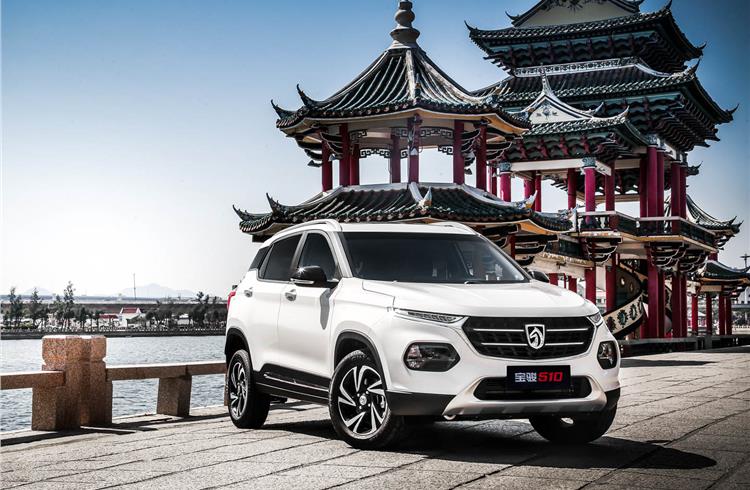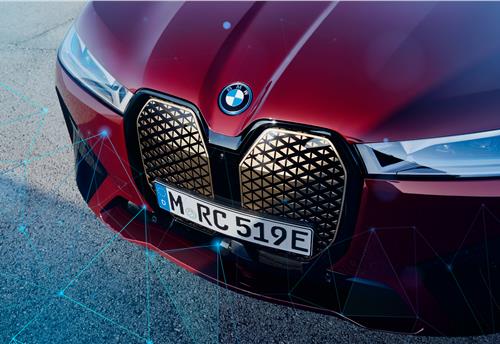SAIC-GM-Wuling launches Baojun 510 compact SUV
Flush with the success of the Baojun brand, GM's China JV 510 aims to acclerate growth in one of China’s fastest-growing segments.
General Motors’ SAIC-GM-Wuling joint venture today launched the Baojun 510, a small SUV that will compete in one of China’s fastest-growing and most-contested segments.
Baojun is one of China’s fastest-growing vehicle brands. In 2016, Baojun deliveries increased 48.5 percent to a record 688,390 units. Its portfolio ranges from small cars to multi-purpose vehicles (MPVs) and SUVs and is targeted at value-conscious consumers across China.
Since its debut at Auto Guangzhou 2016 in November, the Baojun 510 has received attention for its dynamic, youthful and modern exterior. Its aggressive pricing of RMB 54,800 to RMB 69,800 (Rs 557,000 to Rs 710,000) is meant to appeal to young, first-time buyers.
Some of the Baojun 510’s highlights include LED daytime running lights, optimised body proportions, black-and-bright-brown surfaces inside the cabin and quality materials. To ensure high quality of NVH levels, the carmaker says 28 improvements were made in the Baojun 510, with high-quality sound insulation adopted in 34 areas.
The Baojun 510 comes with a semi-open panoramic sunroof, air-conditioning with automatic constant temperature control, keyless entry, push-button start, cruise control, and heated and folding outside rearview mirrors that can be adjusted electronically. Its 8-inch LCD screen incorporates a reverse camera and can be connected to users’ smartphones.
All models are powered by a 1.5-litre engine and six-speed manual transmission. The Baojun 510 is also available with Electronic Stability Control (ESC), dual front airbags, side airbags and a tyre pressure monitoring system.
SAIC-GM-Wuling says its latest SUV went through more than 400,000km of testing in extreme conditions on and off the road – which was equivalent to 160,000km of daily use – while the engine was put through over 10,000 hours of simulated testing.
The Baojun 510 also underwent extensive chassis tuning. Engineers optimised the body structure for added comfort and solid handling.
RELATED ARTICLES
Visteon wins $1.4 billion in new business in Q1 2024, launches 26 new products
Digitisation of vehicle cockpit megatrend is a key growth driver for Visteon with over $400 million of displays wins; Vi...
BMW uses Catena-X ecosystem using real-world CO2 data to enhance quality
Working together with partners and suppliers, the company has modelled a complete data chain for the first time using re...
Toyota to invest $1.4 billion in Indiana plant for new electric SUV
The investment will go towards building the all-new BEV as well as a new battery pack assembly line using lithium-ion ba...





 By Autocar Pro News Desk
By Autocar Pro News Desk
 20 Feb 2017
20 Feb 2017
 8431 Views
8431 Views


















